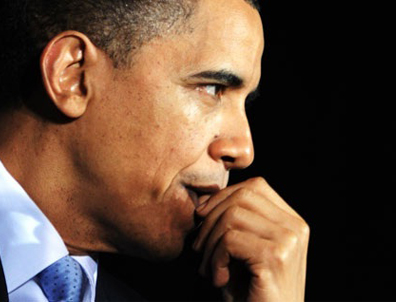
Our policy toward the world’s best and brightest is currently: “Welcome! Enjoy this expensive education. Now go home!” Does that make any sense?
Behind Door #1 are people of extraordinary ability: scientists, artists, educators, business people and athletes. Behind Door #2 stand a random assortment of people. Which door should the United States open?
In 2010, the United States more often chose Door #2, setting aside about 40,000 visas for people of extraordinary ability and 55,000 for people randomly chosen by lottery.
It’s just one small example of our bizarre U.S. policy toward high-skill immigrants. Every year, we allow approximately 140,000 employment visas, which cover people of extraordinary ability, professionals with advanced degrees, and other skilled workers. The number is absurdly low for a country with a workforce of 150 million. As a result, it can be years, even decades, before a high-skilled individual is granted a U.S. visa. Moreover, these 140,000 visas must also cover the spouse and unmarried children of the high-skilled worker, so the actual number of high-skilled workers admitted under these programs is less than half of the total. Perhaps most bizarrely there is a cap on the number of visas allowed per country regardless of population size. How many visas are allocated to people of extraordinary ability from China, a country of over 1 billion people? Exactly 2,803. The same number as are allocated to Greenland.
A rational immigration policy would open the United States to many more high-skill immigrants. High-skill immigrants innovate, patent, and start new firms at higher rates than natives. At least one-quarter of the new firms in technology and science fields, from software and semiconductors to biotech, are founded by immigrants. In Silicon Valley, more than half of the high-tech start-ups were founded by immigrants. High skill immigrants especially with degrees in the fields of science, technology, engineering and mathematics (aka: STEM) create more jobs and higher wages for Americans. Increasing high-skill immigration is such a win-win policy for increasing innovation that it’s tempting to call it a no-brainer. Instead, “no-brainer” turns out to be a better description of our current policy.
At a minimum, we should shift from family-based immigration to work-based immigration, using a point system for skills, such as used by Canada, Australia and Hong Kong. At the same time as we limit skill-based visas to 140,000, we have over 1.1 million legal immigrants per year, most based on family immigration. Even the harshest critics of immigration cannot fault a policy that keeps the number of immigrants constant while shifting toward more high-skill immigrants.
We also should create a straightforward route to permanent residency for foreign-born students who graduate with advance degrees from American universities, particularly in the fields of science, technology, engineering and mathematics. We educate some of the best and brightest students in the world in our universities and then on graduation day we tell them, “Thanks for visiting. Now go home!” It’s hard to imagine a more short-sighted policy to reduce America’s capacity for innovation.
In an election year, no one expects any major action on immigration reform. But support for fixing our high-skill immigration system is widespread and bipartisan. A bill to lift the country cap on employment visas (“Fairness for High-Skilled Immigrants Act” (H.R. 3012)) sailed through the U.S. House in November on a 389-to-15 vote, although it was later blocked in the Senate for tactical reasons by Sen. Chuck Grassley (R-Iowa). Senator Charles Schumer (D-NY) and U.S. Rep. Jeff Flake (R-Ariz.) have both put forward proposals to “staple” a green card to the diplomas of foreign students graduating from U.S. universities with advanced degrees in STEM fields, an idea that also been endorsed Newt Gingrich, Mitt Romney and President Obama. Few people defend the current system.
We should debate the issues on which we do not agree. But shouldn’t we also agree to act on the issues over which there is no debate? The time to increase high-skill immigration is now.
Alexander Tabarrok is Research Director for The Independent Institute, Assistant Editor of The Independent Review, and Associate Professor of Economics at George Mason University. He received his Ph.D. in economics from George Mason University, and he has taught at the University of Virginia and Ball State University. Dr. Tabarrok is the editor of The Independent Institute books, Entrepreneurial Economics (Oxford University Press), The Voluntary City (with David Beito and Peter Gordon, University of Michigan Press), and Changing the Guard: Private Prisons and the Control of Crime.




